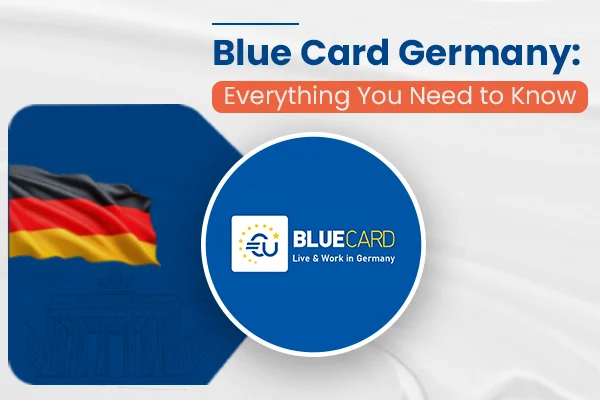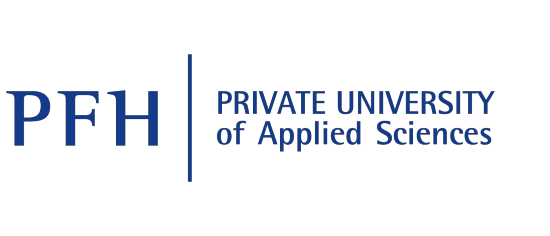

Blue Card Germany: Everything You Need to Know
Professionals who are seeking to work and settle in Germany, the Blue Card Germany serves as an entry point to a promising career and lifestyle in Europe. This scheme is designed for non-European Union citizens with exceptional skills, providing them with expedited pathways to benefits like permanent residency, greater salary limits, easy family reunification, and more, which are covered in later sections of this article.
What is the Blue Card in Germany?
The Blue Card Germany is a license to live in the country, particularly for highly skilled non-EU citizens who wish to work and stay in Germany. Germany introduced the Blue Card permit in 2012 with the intention to increase the talented labour in fields such as IT, engineering, healthcare, and research, which were facing skill shortages. Although the Blue Card is an initiative for the entire EU, Germany has its own specific guidelines and pros while applying through them.
RECOMMENDED: Best University in Germany for Masters
Eligibility Criteria for Blue Card Germany
To obtain the Blue Card in Germany, you must satisfy the following prerequisites:
- You must have a university diploma that is approved in Germany or is equivalent to a German degree.
- You must have a confirmed job offer from a German employer in a highly skilled profession.
- The job position should pay you a minimum gross yearly salary. From 2024, this figure is expected to be €45,300 approx. For some shortage occupations like IT, engineering, and healthcare, this number is around €41,041.
- The position should correspond with your qualifications.
These points confirm that the Blue Card in Germany is reserved for those who are highly skilled and fulfill the country’s labor needs.
Required Documents for a Blue Card in Germany
To fulfil the Blue Card Germany requirements, you will need the following documents:
- Valid Passport
- A Recognized University Degree, its recognition can be checked via the Anabin Database.
- Job letter or Employment Agreement
- Proof of Salary, which should not be below the minimum range.
- Health Insurance document
- Filled Application Form
- Biometric Photos
It is advisable to prepare two sets of documents: one in digital format and one in hard copies.
RECOMMENDED: Masters in UI/UX design
Benefits of the Blue Card Germany
Blue Card in Germany’s benefits are far more numerous than those of other work permits. A few of its advantages include:
- High earnings: As mentioned above, you can earn a minimum of €45,300 per year, with reduced requirements (€41,041.80) for shortage occupations.
- Fast-track PR: Permanent residency can be applied for after 33 months, or 21 months with B1-level German language proficiency.
- Family Reunification: Spouse and children are free to accompany you, while the spouse may work without restrictions.
- Mobility Across EU: It allows for the transfer to another EU country for a Blue Card after 18 months without restarting the whole process.
- Job Flexibility: You can change your job without permission from the German government after two years of obtaining the Blue Card.
- Duration of the Card: It is issued for a period of four years or the length of your employment contract, with an additional three months.
Considering the above, the Blue Card Germany proves to be advantageous for professionals globally.
How Much Will It Cost?
Some administrative expenses will be incurred through an application for the Blue Card in Germany. Here’s the fee structure:
- Application Fee: about 100 Euros.
- Recognition of Degree (If Needed): 200-600 Euros.
- Health Insurance: 70-150 Euros per month, depending on age and provider.
- Translation and Certification (If Any): 50-150 Euros.
An investment of about 400-800 Euros is required in total. Given the long-term career benefits, it’s worth the investment.
Allocation of Time for Blue Card in Germany and its Renewal Tips
The Blue Card Germany allows a professional to stay and work for four years in Germany. However, if the period of contract for your employment is of shorter duration, then the card is issued for that duration plus another three months beyond its validity.
Tips for Easy Renewal:
- Try to Apply Early: Apply for its renewal at least 8 weeks before expiry.
- Keep Employment Stable: The longer you stay in the same position, the easier an extension is.
- Insurance and Proof of Salary must be kept updated and carried at all times.
- Learn the Language: German language skills increase your chances of PR and integration.
PFH University is a well-known university that provides its students, a comprehensive academic foundation that enhances their employability. It also supports international students in accessing opportunities like the Blue Card Germany. With tailored programs in management, engineering, and technology, PFH equips students with the skills Germany needs.
RECOMMENDED: Study in Germany for Indian Students
Conclusion
The Blue Card Germany opens up the opportunity to upgrade life, beyond being just a work visa. For Indian professionals, mostly in tech and engineering, it opens the path toward a global career that enjoys the perks of a European lifestyle. Given its crisp criteria, mature job market, and fast track to permanent residence, it is the most attractive option for working abroad today.
If you’re a student or graduate of PFH University, you’re already on the right track. The university’s strong academic network and career support can guide you through everything, from finding blue card jobs in Germany to application assistance and settling down successfully.
Frequently Asked Questions
No, a job offer is a mandatory requirement to apply for the Blue Card Germany.
Positions that necessitate high qualifications, specifically in short supply sectors such as IT, engineering, medicine, and research, are eligible. Usually, these are termed as blue card jobs in Germany.
Not for the Blue Card, but speaking German is helpful regarding the integration process and accelerates obtaining permanent residency.
Yes, your partner is able to work with no limitations.
On average, it takes from 6 up to 12 weeks, depending on your documents and the workload at the German embassy or immigration office.
Planning your education or career in Germany? PFH University is your stepping stone to success in Europe.
